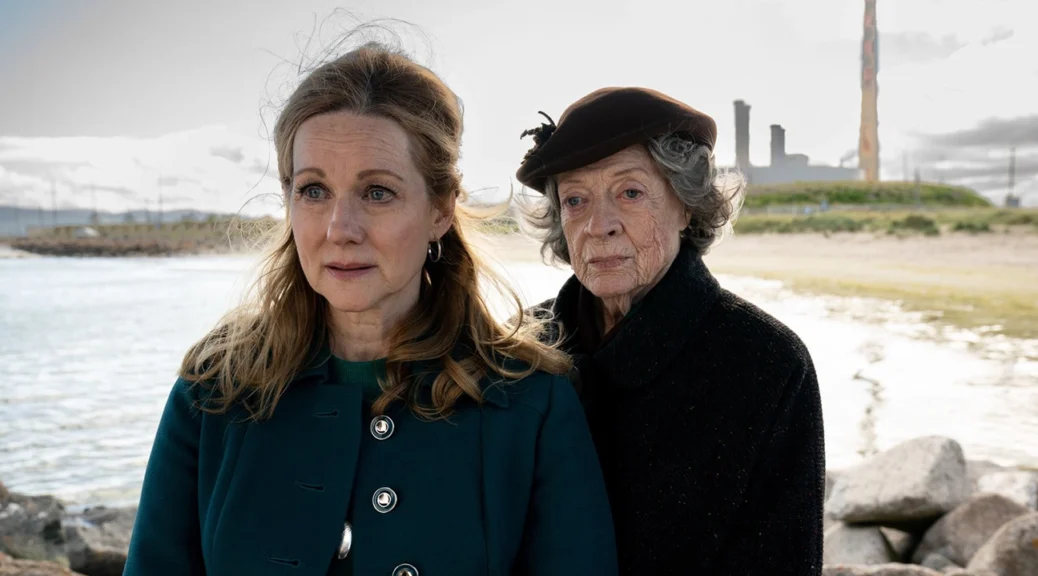The Miracle Club
by Hope Madden
Wasting an exceptional if oddly miscast ensemble, Thaddeus O’Sullivan’s The Miracle Club has something important on its mind. It just can’t quite articulate it.
Two Americans and a Brit lead the cast as scrappy Irish folk. Chrissie (Laura Linney) is the prodigal daughter returned for her mother’s funeral. Eileen (Kathy Bates) is her childhood friend who cannot believe Chrissie had the gall to return after what she did. The deceased’s best friend Lily (Maggie Smith) is disappointed the girl didn’t come sooner to comfort her mother during her time of need.
Chrissie’s timing is actually amazing. The whole parish is taking part in a talent show in honor of her mother. The winners get a trip to Lourdes to ask for a miracle. One contrivance follows another and next thing you know, Chrissie, Eileen and Lily are all en route to the holy city in France, begrudgingly together.
The Miracle Club is frustratingly evasive when it comes to Chrissie’s backstory. We get a sense but no real clarity, but it seemed to have been something quite dire. And yet, all is forgiven without much a do.
What O’Sullivan – working from a script by Joshua D. Maurer, Timothy Prager and Jimmy Smallhorne – tries to bring to the surface is an image of systemic oppression relieved only when women support each other.
There is one moment – a climactic confession – where the film’s themes resonate, thanks mostly to Linney’s quietly desperate performance. Dolly (Agnes O’Casey) is hoping that, with the help of the Blessed Virgin, her son will finally speak. But she has a secret, and she believes she’s to blame for whatever ails little Daniel (Eric D. Smith, adorable).
In this moment, O’Sullivan’s film seems to find its miracle, as four women recognize the burden their faith and the patriarchy have put on them. But we must rely on the weighty stares from one talented actor to the next because the film has no intention of pinpointing its deeper concerns.
Worse still, O’Sullivan’s film is so entirely forgiving of both the church and the patriarchy that these themes feel as artificial as the leads’ accents.
O’Sullivan’s tone is forever uplifting, sometimes comically so, but the underlying peril these women have faced and forced is anything but light. He and his writers (men, all) honor these put-upon women who manage. God bless them for managing. God forbid they revolt.





